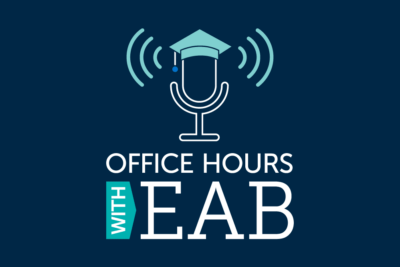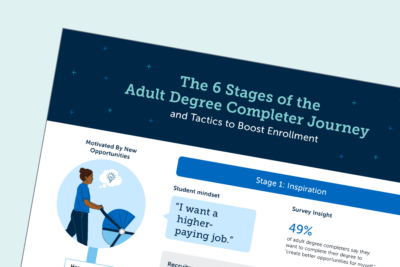Adult Degree Completer Recruitment Resource Center
Enrollment leaders face renewed pressure to recruit new and different audiences to offset declines in traditional undergraduate enrollment. Some institutions have doubled down on efforts to recruit adult degree completers, or students with some college credit but no degree. But adult degree completers are historically a challenging audience to identify, reach, and recruit. In this resource center, you will find insights on the adult degree completer mindset, strategies to recruit this audience, and research into the size of the adult degree completer market in the wake of economic downturn.
Understanding adult degree completers

Here’s why adult degree completers return to college—and why they don’t

Insights From 1,000+ Adults Considering Completing Their Bachelor's
Recruiting adult degree completers

Accelerate the adult degree completer’s journey to enrollment

The 6 stages of the adult degree completer journey
Recruit degree completers
Read this white paper for insights into these prospective students’ mindset, actionable recommendations to guide your marketing strategy, and best practices for designing programs to attract them.
Partner success story
Discover how Birch University raised awareness and engagement among key prospect audiences, resulting in 65,000 unique prospects reached by digital ads and 22 enrollments influenced by EAB campaigns.
Sizing the adult degree completer market

What the 2008 Recession tells us about the future of the adult degree completer market
Supporting adult degree completers

Charting a Path to Persistence

What data shows about student stopout trends

Reenroll college stopouts
Learn how one institution’s re-enrollment program contributed to an increase of more than 20% in enrollments and a 15% increase in re-enrollment and new student applications to the college.